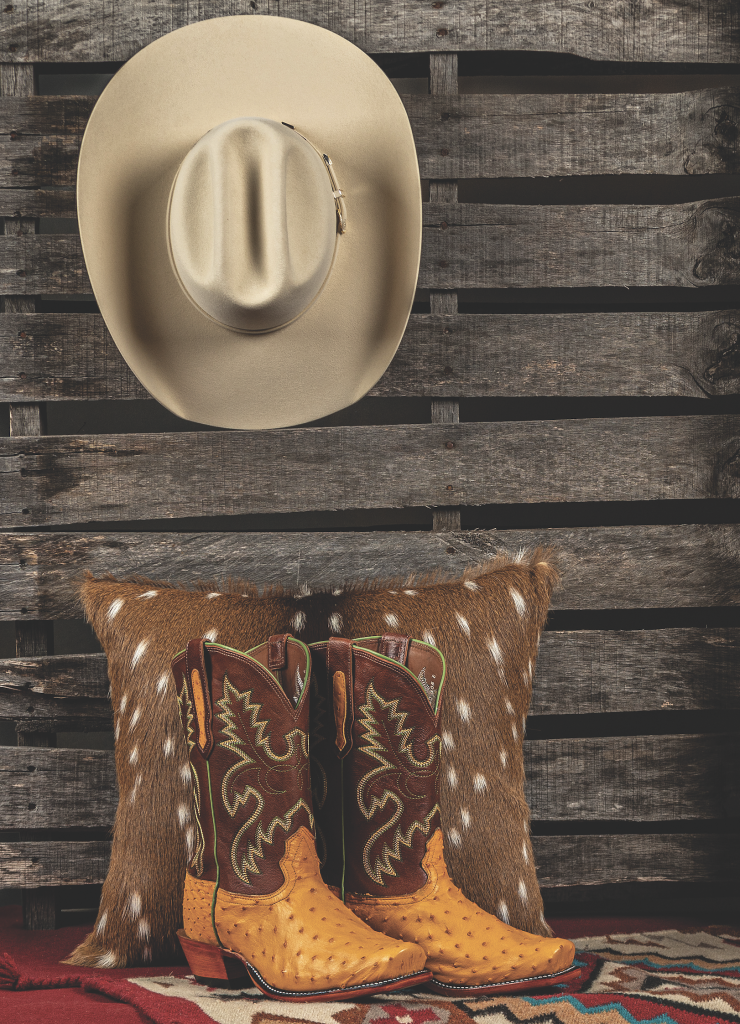Six lessons in selling the coveted, complicated label from a century-old brand.
The label “made in the USA” is simple and evocative. At least, it sounds simple. But because of free trade and the development of the global supply chain, it’s actually pretty complicated. The Federal Trade Commission has a 40-page document explaining the intricacies of what qualifies for the label — and even so, nuances (and fakes) abound.
It’s difficult to be an informed consumer — or retailer — in this environment. However, the sentiment and the appeal of “American-made” is still simple enough. Many consumers, particularly in the Western space, want to support U.S. companies and jobs. The question for retailers is, will they do so for a higher price tag?
American Hat Company has sold cowboy hats since 1915. They’ve been American-made that whole time — except for one year in 2013, when they began importing a line of kids’ hats. That departure from the brand’s mission prompted its president, Keith Mundee, to draw up a company constitution preventing them from doing so again — and ensuring that both the brand and its customers knew what they were all about. The soul-searching the brand did led to some lessons for Western retailers who want to “sell American.”
The label might not mean something to every consumer, but it likely means something to the brand.
“We began importing kids’ hats from Mexico when we got some pressure from dealers to make kids’ hats and they didn’t want to pay much for them. It felt like we were getting pulled in different directions. I was asking, ‘Who are we? What do we stand for? What do we believe in?’ Ultimately, we’re called American Hat Company, and we make the cowboy hat, the symbol of America. So now we make the kids’ hats with the rest of them in Bowie, Texas.”
It’s OK to pay for the label.
“There are people out there who just want to buy the least expensive — that’s not necessarily my targeted customer. I tell people all the time, it’s not hard to find a cheaper hat; the hard part is wearing it.”
Don’t just think nationally; think locally.
If it’s made in America, to some of your customers, it’s made in their neighborhood, or their city. That means they have a connection to the brand and the people who work for it. Mundee himself lives in Bowie, about 15 minutes away from his factory.
Knowing where something is made and who made it can mean quality control.
“I’m not relying on someone else to make it and then we put our name on it. We don’t sell anything that doesn’t pass our quality test. We don’t sell to discounters. Nothing gets our label on it that hasn’t come from our factory and been made by us. We touch it and feel it before it leaves our building. Quality first: It’s the first thing on the company constitution.”
Purchases are personal, and a lot of persons are behind them.
“We have a responsibility to our employees. We have 115 employees, and to outsource their jobs is unconstitutional to us. We feel like it’s the right thing to do, to make our products here in the U.S.”
The label can be a symbol just as much as the product is.
“The cowboy hat is the symbol of the great, iconic American cowboy. If you walk through the doors of an elementary school, the boots, the jeans, the buckle don’t make you a cowboy — the hat does. So, we choose to make our hats here in the U.S.”
From the June 2021 issue of W&E Today, the ultimate resource for Western retailers from the editors of Cowboys & Indians.
Photography: (All images) Sam Franks



























